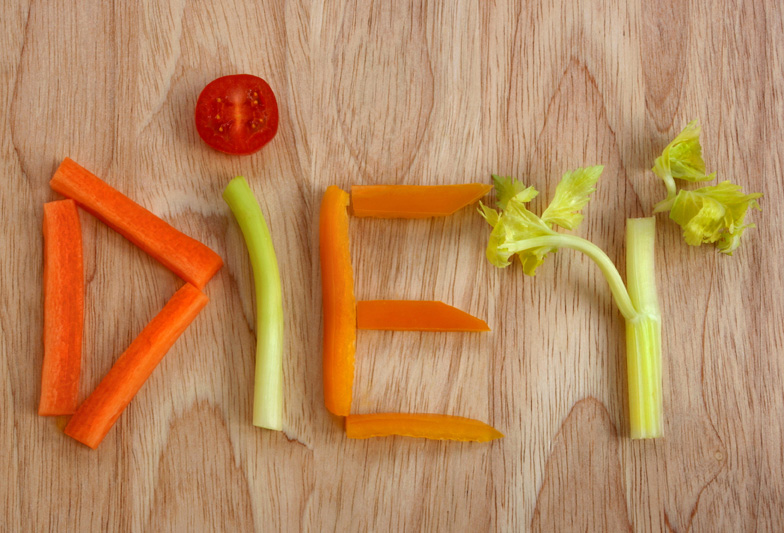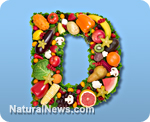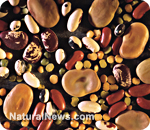All Diets Types and Their Explanations - How to Navigate and Choose the Best One For You
Atkins Diet
"The Atkins Diet is a high-protein, low-carbohydrate weight loss diet developed by Robert Atkins, M.D., during the 1960s. In the early 1990s, Dr. Atkins brought his diet back into the nutrition spotlight with the publication of his best-selling book "Dr. Atkins' New Diet Revolution".
The Atkins Diet severely restricts the consumption of carbohydrate-rich foods and encourages the consumption of protein and fat. The diet is divided into four phases: Induction, Ongoing Weight Loss, Pre-maintenance, and Maintenance. During the Induction phase (the first 14 days of the diet), carbohydrate intake is limited to no more than 20 grams per day. No fruit, bread, grains, starchy vegetables, or dairy products (except cheese, cream, and butter) are allowed during this phase. During the Ongoing Weight Loss phase, dieters experiment with various levels of carbohydrate consumption until they determine the most liberal level of carbohydrate intake that allows them to continue to lose weight. Dieters are encouraged to maintain this level of carbohydrate intake until their weight loss goals are met. During the Pre-maintenance and Maintenance phases, dieters determine the level of carbohydrate consumption that allows them to maintain their weight. To prevent weight regain, dieters are told to maintain this level of carbohydrate consumption, perhaps for the rest of their lives. According to Dr. Atkins, most people must limit their carbohydrate intake to no more than 60 grams per day to keep lost weight off. In addition to the dietary restrictions discussed above, Dr. Atkins recommends regular exercise and nutritional supplementation as part of his weight loss program.
Note: The dietary recommendations issued by various organizations, including the United States Department of Agriculture, the National Institutes of Health, and the American Heart Association, encourage a daily carbohydrate intake of approximately 300 grams. To stay healthy, you will need to consume five times more what Atkins prescribes in his diets. Can a human being last long enough on this diet without experiencing any side effects? If the dieter dares to cheat on this program, the result can be detrimental and the weight can be regained easily, twice as much as what has been lost during the diet. The quick weight gain brings about eventual depression and the dieter will eventually reach his original weight before the weight loss.
What is so attractive about the diet that so many individuals have taken the time and effort to apply?
High-protein diets are the fad regimens of the moment. Their theory for weight loss consists of eating lots of animal proteins and skipping carbohydrates such as breads, rice and pasta. The theory behind these diets is that if you load up on animal proteins, you will feel fuller faster, so you'll end up eating less.
The Atkins Diet is attractive to dieters who have tried unsuccessfully to lose weight on low-fat, low-calorie diets. Atkins dieters can eat as many calories as desired from protein and fat, as long as carbohydrate consumption is restricted. Consequently, many Atkins dieters are spared the feelings of hunger and deprivation that accompany other weight loss regimens.
The underlying premise of the Atkins Diet is that diets high in sugar and refined carbohydrates cause weight gain, and ultimately lead to obesity. Such diets increase the production of insulin (a hormone secreted by the pancreas). When insulin levels are high, the food we eat is quickly and easily converted into fat, and stored in our cells. By restricting the consumption of carbohydrates, the production of insulin is moderated. In addition, the lack of available carbohydrate (the body's preferred fuel source) forces the body to burn stored fat as energy.
What do the critics say?
Many nutrition experts disagree with the basic premise of the Atkins Diet - the notion that high-carbohydrate, low-fat diets cause obesity. For evidence of the implausibility of the Atkins Diet, some nutritionists point out that the traditional Japanese diet is very high in carbohydrates, low in protein, and very low in fat; however, before the introduction of high-fat and high-protein Western foods, being overweight was rare in Japan. Such findings make sense because ounce for ounce, carbohydrates contain far fewer calories than fats (4 calories from carbohydrates versus 9 calories from fat). These critics blame the over-consumption of calories (from any source) and lack of physical activity as the primary causes of obesity.
One concern about a high-protein diet stems from all the saturated fats one eats - those fats that we're told cause high cholesterol, clogged arteries and, eventually, heart disease. Critics also express concern about the impact of the Atkins Diet on the overall health of the dieter. Depending on the foods chosen by the dieter, the diet may contain a large amount of saturated fat and trans fat, putting those at risk for heart disease in danger. Recent research has found that high-protein diets speed up the progression of arteriosclerosis, the main cause of heart attacks. Moreover, contrary to Atkins' claims, extremely low-fat diets have been found to reverse heart disease. In addition, the lack of grains, fruits, and vegetables in the Atkins Diet may lead to deficiencies of key nutrients, including dietary fiber, vitamin C, folic acid, and several minerals. Finally, high protein diets may increase the risk of osteoporosis and accelerate the rate of deterioration in kidney function associated with aging.
Critics concede that Atkins dieters often experience significant weight loss during the initial stages of the diet. However, these critics argue that the diet has a diuretic effect and that the initial weight loss is due to water loss, not fat loss. Eventually the body restores its water and sodium balance, and the rate of weight loss declines. Critics also note that there is no evidence showing that the Atkins diet leads to greater weight loss than do other diets that provide more carbohydrates, yet the same number of calories.Critics also note high-protein diets can lead to dangerous imbalances - bone loss and kidney problems - because too much protein can overwork the kidneys.
Dr. Atkins was the first person who brought a low-carbohydrates diet to major prominence in the U.S. and I credit him for defying "the system" and offering a weight loss plan that works for some people. He presents scientific fact, but for the most part his recent book provides anecdotal information from many of his patients.
Dr. Atkins claims that some people have a condition of "hyper-insulinism", in which they produce excess amounts of insulin when they eat carbohydrates, which in turn causes fat storage, diabetes, and a craving for more carbohydrates. This theory is scientifically logical but has not been accepted as proven by the medical community.
In Dr. Atkins' "maintenance phase", he advises that persons increase their carbohydrate intake to the point where they do not gain or lose weight.
All that is great, however, how can we understand the whole concept behind his diets and why do people truly believe in it? How does it actually work?
Insulin is a hormone, which is a substance that travels through the body and stimulates chemical reactions. The human body has mechanisms to regulate how much of each hormone is produced, so that their effects can be controlled. With insulin, however, there is no "shut-off" switch as there is with other hormones. The digestion of carbohydrates produces insulin, and there is no way to stop its activity once it is present in the bloodstream. There is also no way to prevent it from being produced when carbohydrates are consumed, even if these are in excess of what the body needs for fuel.
So, the more carbohydrates you consume, the more insulin the pancreas will produce to help digest the sugars of the carbohydrates. The more insulin that is being produced, the more stored fat will be sent to the cells, especially to those around your waist.
I believe Dr. Atkins' diet may be useful for persons who are very sensitive to carbohydrates and have extremely slow metabolic rates.
I believe Dr. Atkins' diet may be useful for persons who are very sensitive to carbohydrates and have extremely slow metabolic rates.
Dr. Atkins' diet does not restrict protein intake, which is the correct approach. However, his advice to add carbohydrate grams for the maintenance phase so that continued weight loss does not occur is not scientifically sound. There is no indication that a person will continue to lose weight below his ideal bodyweight, taking in consideration his body type and metabolism. Your body is predisposed to a certain weight, even though you interrupt carbohydrates consumption from your diet, the body will still maintain the same weight. After that phase, you will simply need to maintain it and be happy with it.
Extreme dieters will need to understand that all the information mentioned above and below these lines is to make you realize some facts that you've never taken the time to research. When a diet becomes popular, people jump on it without researching in more detail what it can do for their bodies or if the diet fits their standard. It is not because "John Doe has lost some weight on this specific diet" that you will have a similar result. The same goes for diet pills: be careful with them. If they work temporarily for some people, it doesn't necessarily mean they will have the same effect on you.
As for me, experiencing my own programs enabled me to lose weight, maintain it and still eat as much as I want of the right foods. I eat and exercise plenty.
Remember that moderation is important. If you want to eat something that is not healthy, go ahead and eat it. However, make sure to moderate the rest of the day with the right food. The following information should be helpful when it comes to moderation regarding a well-balanced diet.
Here are some good reasons to avoid high-protein diets:
1. They violate almost every known fact about nutritionally balanced eating. For some dieters, these diets can even be life threatening.
2. Popular high protein diet foods are high in cholesterol and saturated fat, which are now established as major culprits in heart attacks and strokes.
3. They overload you with protein, which results in loss of calcium from your bones, which may lead to osteoporosis. Protein overload also pressurizes your kidneys as they try to eliminate large amounts of urea, a by-product of protein metabolism.
4. They forbid foods known to lower the risk of heart disease and many cancers.
5. They deprive you of carbohydrates, the nutrient group most readily converted to energy. Even moderately active people will notice this lack during exercise.
6. They deprive your brain of glucose, which it needs for normal functioning. The result is a slowdown in thinking and reaction time.
7. They deprive you of the enormous benefits of fiber, which is a form of carbohydrate (cellulose).
8. They are deficient in essential vitamins. Indeed, some high protein diets even require you to take vitamin supplements for the sake of your health.
9. They cause potentially dangerous changes in your body chemistry.
2. Popular high protein diet foods are high in cholesterol and saturated fat, which are now established as major culprits in heart attacks and strokes.
3. They overload you with protein, which results in loss of calcium from your bones, which may lead to osteoporosis. Protein overload also pressurizes your kidneys as they try to eliminate large amounts of urea, a by-product of protein metabolism.
4. They forbid foods known to lower the risk of heart disease and many cancers.
5. They deprive you of carbohydrates, the nutrient group most readily converted to energy. Even moderately active people will notice this lack during exercise.
6. They deprive your brain of glucose, which it needs for normal functioning. The result is a slowdown in thinking and reaction time.
7. They deprive you of the enormous benefits of fiber, which is a form of carbohydrate (cellulose).
8. They are deficient in essential vitamins. Indeed, some high protein diets even require you to take vitamin supplements for the sake of your health.
9. They cause potentially dangerous changes in your body chemistry.
10. They deliver temporary weight loss. However, a large part of it is water weight and lean muscle mass - not fat. (You lose water because your kidneys try to get rid of the excess waste products of protein and fat, called ketones, that your body makes.)
Note: Weight gain is usually rapid when you go off the diet.
11. Finally, it's worth knowing that while your body burns up 23 calories for every 10o carbohydrate calories it digests, it only burns up 3 calories for every 100 "fat" calories it digests. Therefore, a high-protein, low-carbohydrate diet makes it easier for you to stay fat!
FYI (For Your Information):
The average Western diet contains TOO MUCH FAT.
That's why an estimated 1 in 3 American children are overweight!
That's why heart disease is the No. 1 killer in America and Europe.
We should be eating less fat, not more.
The average Western diet contains TOO MUCH FAT.
That's why an estimated 1 in 3 American children are overweight!
That's why heart disease is the No. 1 killer in America and Europe.
We should be eating less fat, not more.
High protein diets encourage high-fat eating and - for this reason alone - should be avoided.
What are those medical miracles that are being publicized to consumers for their rapid weight loss programs? The magazine Self, in March of 2002 investigated some of the programs that are simply bogus.
What are those medical miracles that are being publicized to consumers for their rapid weight loss programs? The magazine Self, in March of 2002 investigated some of the programs that are simply bogus.
"Healthy weight loss" is not a particularly sexy marketing slogan. It is quite impossible to sell these types of slogans to Americans: "Drop pounds by eating fewer calories and increasing physical activity!" Instead, manufacturers of weight loss concoctions resort to selling their products with dubious promises of magically speedy results. Thankfully, separating fact from fiction is easy.
Read full here
Article Source: http://EzineArticles.com/1516090










